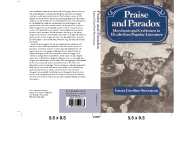Introduction: praise and paradox
Published online by Cambridge University Press: 29 October 2009
Summary
The subjects of Elizabeth I witnessed three remarkable intellectual and social changes during their lifetimes: the flowering of English literature, the spread of literacy into the lower ranks of society, and the development and diversification of the English economy. These changes were indirectly related to one another: the prosperity some men gained from economic change was one of the factors that made the spread of literacy possible, and the demands of an increasingly literate audience encouraged Elizabethan authors to expand their literary output. Thus, at one remove, English economic change created circumstances that favoured the burst of literary talent in Elizabeth's reign; and some authors, as if grateful for the favour, returned the compliment by praising the exploits of merchants, industrialists, and craftsmen. The effect of these authors’ works on later commercial expansion, exploration and colonization was, of course, indirect; but some secondary, complex connection probably did exist. For the authors who reflected upon men of trade reflected also upon the place they should have in society. They grappled with the problem of fitting men whose money came from commerce into a social structure based on the assumption that status came from land, not capital. In so doing, they pressed against the boundaries of social theory in order to create a place for what, some time later, appeared as commercial self-consciousness.
The works that praised Elizabethan merchants, craftsmen and industrialists have great potential value as guides to the social assumptions, attitudes and ambitions of sixteenth-century Englishmen.
- Type
- Chapter
- Information
- Praise and ParadoxMerchants and Craftsmen in Elizabethan Popular Literature, pp. 1 - 8Publisher: Cambridge University PressPrint publication year: 1984



